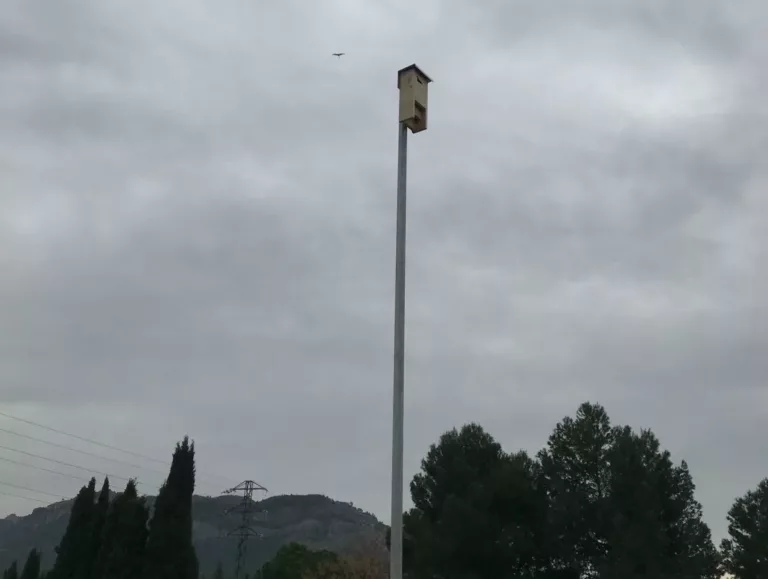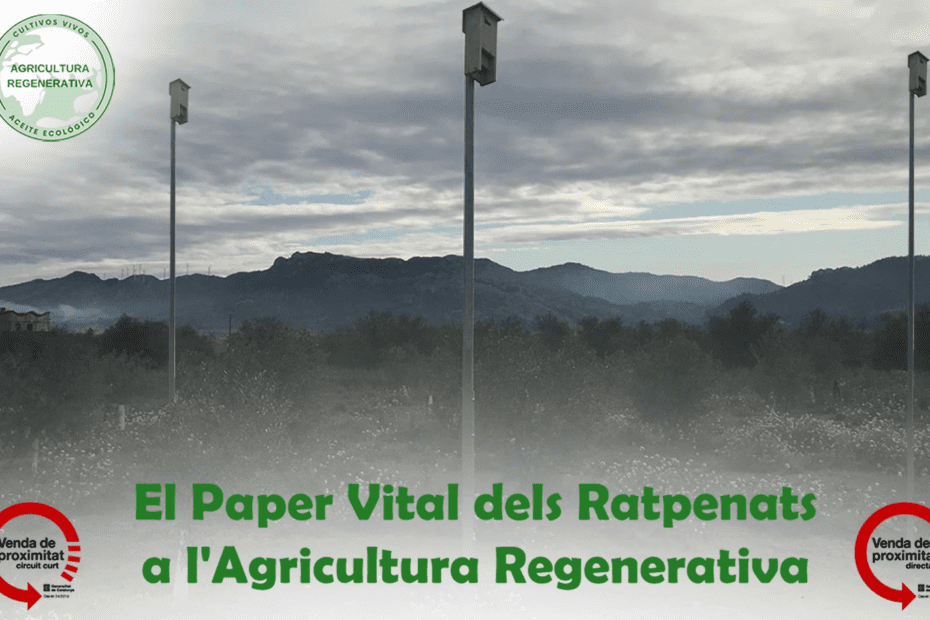Regenerative agriculture is emerging as a hopeful response to the environmental challenges facing our modern society. Unlike conventional agricultural methods, which often focus solely on crop production, regenerative agriculture seeks to restore and enrich agricultural ecosystems, promote biodiversity, and improve soil health.
In this context, bats play a crucial role as natural pest controllers. Taking advantage of their ability to consume large amounts of insects, these flying mammals offer an ecological solution for pest management in agriculture. Thus, their presence not only protects crops naturally, but also promotes the sustainability and balance of agricultural ecosystems.
The bat houses we have started to install in our fields are an example of our dedication to this cause. At first glance, these structures may seem simple, but their impact can be revolutionary. Bats are indeed one of the best allies a farmer can have. Let's imagine, for example, an olive tree affected by an insect plague that is destroying the olives. Instead of immediately turning to pesticides, bats can provide a natural and effective solution. These nocturnal creatures can consume up to thousands of insects in a single night, significantly reducing the pest population and sustainably protecting crops.

Benefits provided by bats
The use of bats as pest controllers in agriculture offers several advantages over the use of pesticides or chemicals:
-
Environmental sustainability: Pest control using bats is a natural solution that does not require the use of pesticides, thus reducing environmental pollution and protecting local biodiversity.
-
Reduced costs: Implementing bat houses can be cheaper than buying and applying pesticides regularly, as no chemicals or associated manufacturing processes are required.
-
Long-term effectiveness: Bats provide continuous and effective control of insect populations over time, while pesticides can lose effectiveness over time due to the emergence of resistance in pests.
-
Less risk to human health: Reducing reliance on pesticides protects farm workers and end consumers from exposure to harmful chemicals.
-
Promotion of ecological balance: The presence of bats in agricultural ecosystems contributes to maintaining the natural balance, as they are part of a healthy food web and help regulate insect populations.
Therefore, bat houses not only help protect crops naturally, but also promote biodiversity and resilience in agricultural ecosystems. At Les Seviques, we consider these small habitats as an investment in the future of our agriculture and our planet, contributing to a more sustainable and balanced world for everyone.
